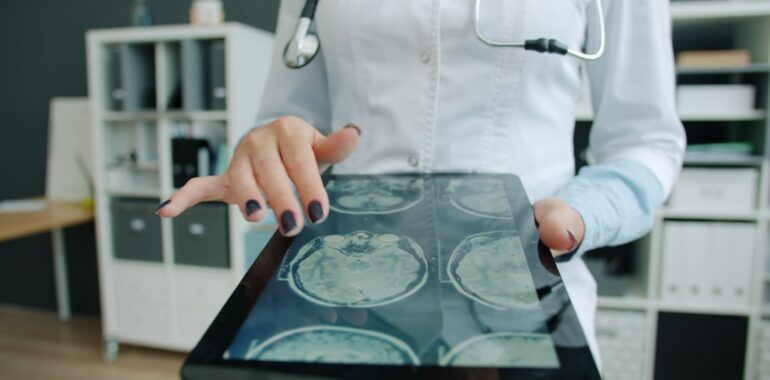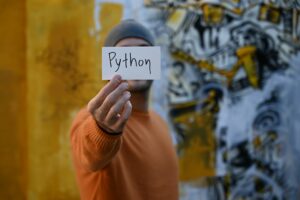Advanced Structured Learning Techniques for Healthcare AI: Insights from GenAI.London

Discover how deep learning for healthcare is revolutionizing medical diagnostics and education with GenAI.London’s structured learning initiatives.
Introduction
The integration of deep learning for healthcare has transformed the landscape of medical diagnostics, offering unparalleled precision and efficiency. GenAI.London stands at the forefront of this transformation, providing comprehensive educational resources that empower self-learners and professionals alike to master advanced machine learning (ML) and deep learning (DL) techniques tailored for healthcare applications.
The Role of Deep Learning in Healthcare
Deep learning, a subset of artificial intelligence (AI), utilizes neural networks with multiple layers to analyze complex data patterns. In the healthcare sector, deep learning for healthcare is pivotal in tasks such as disease diagnosis, treatment planning, and patient monitoring. One of the most notable applications has been in the screening of COVID-19 using chest CT scans, where DL algorithms enhance the accuracy and speed of diagnosis.
COVID-19 Screening with Deep Learning
The COVID-19 pandemic underscored the importance of rapid and accurate diagnostic tools. Deep learning models have been extensively researched and deployed to analyze chest CT scans, offering significant advantages over traditional methods:
- Enhanced Accuracy: DL models like ResNet, DenseNet, and CNNs have demonstrated high accuracy in distinguishing COVID-19 from other respiratory conditions.
- Efficiency: Automated screening processes reduce the time required for diagnosis, alleviating the burden on healthcare professionals.
- Scalability: DL-driven tools can handle large volumes of data, ensuring consistent performance even during peak pandemic periods.
A systematic review published in Healthcare (Basel) highlighted the efficacy of various DL models in COVID-19 screening, showcasing accuracies ranging from 75% to nearly 100%. These advancements illustrate the potential of deep learning for healthcare to improve patient outcomes and streamline medical workflows.
GenAI.London: Empowering Learners in Machine Learning and AI
GenAI.London addresses the challenges faced by self-learners in navigating the vast domain of ML and DL. By offering a structured, week-by-week learning plan, GenAI.London ensures that learners can build a solid foundation in both theoretical and practical aspects of machine learning from day one.
Key Features of GenAI.London
- Structured Learning Paths: Comprehensive weekly plans that integrate theoretical knowledge with hands-on exercises.
- Curated Resources: Access to a vast repository of research papers, online courses, and practical notebooks sourced from leading conferences and expert tutorials.
- Community Engagement: An interactive platform where learners can collaborate, share insights, and work on projects together, fostering a supportive learning environment.
- Expert Analysis: In-depth analysis and commentary on the latest trends and technologies in deep learning for healthcare, ensuring learners stay updated with advancements.
Advanced Techniques in Healthcare AI
GenAI.London not only covers fundamental ML and DL concepts but also delves into advanced techniques essential for healthcare applications:
Transfer Learning and Data Augmentation
- Transfer Learning: Leveraging pre-trained models to enhance the performance of DL algorithms on healthcare datasets. This technique is particularly useful in scenarios with limited labeled data, as seen in early COVID-19 CT scan analyses.
- Data Augmentation: Techniques such as rotation, scaling, and flipping are employed to artificially increase the size of training datasets, improving model robustness and generalization.
Model Evaluation and Performance Metrics
Understanding and measuring the performance of DL models is crucial in healthcare to ensure reliability and accuracy. GenAI.London emphasizes the importance of metrics such as:
- Accuracy: The proportion of correctly classified instances.
- Sensitivity (Recall): The ability of the model to identify true positive cases.
- Specificity: The ability of the model to identify true negative cases.
- Area Under the Curve (AUC): Represents the model’s ability to distinguish between classes.
Future Directions in Deep Learning for Healthcare
As deep learning for healthcare continues to evolve, GenAI.London remains committed to updating its curriculum with the latest research and innovations. Future topics include:
- Explainable AI: Making DL models more transparent and interpretable for clinical decision-making.
- Federated Learning: Enabling collaboration across institutions without compromising patient data privacy.
- Integration with IoT: Combining DL with Internet of Things (IoT) devices for real-time patient monitoring and diagnostics.
Conclusion
The intersection of deep learning for healthcare and structured educational initiatives like GenAI.London is paving the way for a more informed and capable workforce. By providing the tools and knowledge necessary to master advanced ML and DL techniques, GenAI.London is empowering individuals to contribute to the future of healthcare AI.
Ready to advance your skills in healthcare AI? Explore GenAI.London today and join a community dedicated to driving innovations in deep learning for healthcare.
SEO Meta Description
Explore advanced deep learning techniques for healthcare AI with GenAI.London. Discover how AI enhances COVID-19 screening and more. Empower your ML journey today!




